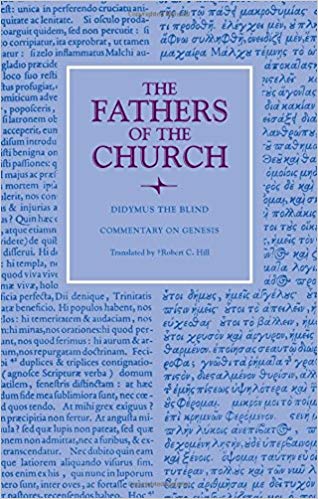Product desciption
Commentary On Genesis The Fathers Of The Church 132 Didymus The Blind by Didymus The Blind 9780813228457, 081322845X instant download after payment.
Blind since early childhood, the Egyptian theologian and monk Didymus (ca. 313-398) wielded a masterful knowledge of Scripture, philosophy, and previous biblical interpretation, earning the esteem of his contemporaries Athanasius, Antony of Egypt, Jerome, Rufinus, and Palladius, as well as of the historians Socrates and Theodoret in the decades following his death. He was, however, anathematized by the Fifth Ecumenical Council in 553 because of his utilization and defense of the works of Origen, and this condemnation may be responsible for the loss of many of Didymus's writings. Jerome and Palladius mentioned that Didymus had written commentaries on Old Testament books; these commentaries were assumed to be no longer extant until the discovery in 1941 in Tura, Egypt, of papyri containing commentaries on Genesis, Zechariah, Job, Ecclesiastes, and some of the Psalms. Translated by Robert Hill / Blind since early childhood, the Egyptian theologian and monk Didymus
(ca. 313–398) wielded a masterful knowledge of Scripture, philosophy,
and previous biblical interpretation, earning the esteem of his
contemporaries Athanasius, Antony of Egypt, Jerome, Rufinus, and
Palladius, as well as of the historians Socrates and Theodoret in the
decades following his death. He was, however, anathematized by the Fifth
Ecumenical Council in 553 because of his utilization and defense of the
works of Origen, and this condemnation may be responsible for the loss
of many of Didymus's writings. Jerome and Palladius mentioned that
Didymus had written commentaries on Old Testament books; these
commentaries were assumed to be no longer extant until the discovery in
1941 in Tura, Egypt, of papyri containing commentaries on Genesis,
Zechariah, Job, Ecclesiastes, and some of the Psalms. Certain features of the Genesis commentary, unfortunately not preserved
in its entirety, seem to indicate that it may have been Didymus's
earliest work. In addition to his silence regarding his other works,
remarks on specific heresies as well as Christological interpretations
occur much less frequently here than in his Zechariah commentary
(previously published in Fathers of the Church Vol. 111). Moreover, the
heavier reliance on Philo and Origen may indicate relative inexperience. Whereas Didymus specifically names Philo in this commentary, he never
identifies Origen as one of his sources even when quoting the latter
verbatim. Like Origen, he rejects anthropomorphic interpretations and
proceeds to an allegorical approach when the literal meaning repels him.
He does not, however, neglect the literal-historical level; see, for
example, his examination of the story of the Flood. All three of
Origen's levels of interpretation―literal, moral, and allegorical―are
mobilized here. This previously untranslated text is crucial for studies
of the fourth century and of the monumental influence of Origen.


